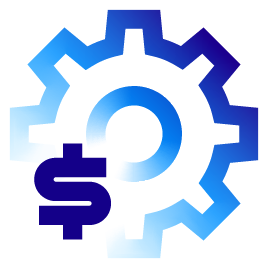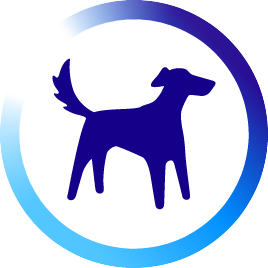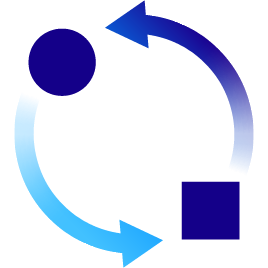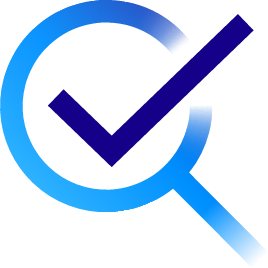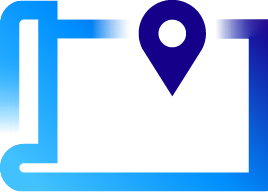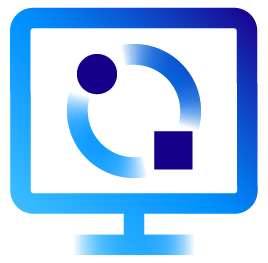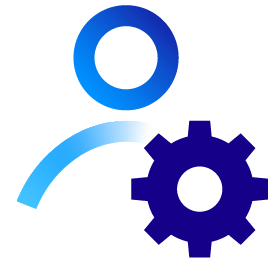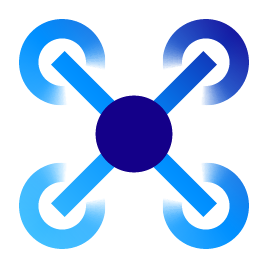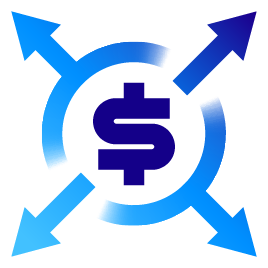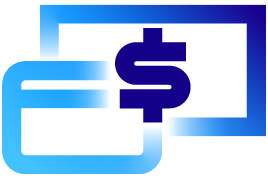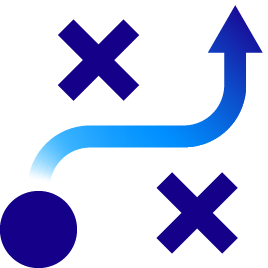Years ago, businesses of all sizes, from sole proprietorships to large corporations, used multiple, non-communicative software for bookkeeping, scheduling, and record management. Once used as electronic rolodexes to track client and prospecting activities, Customer Relationship Management (CRM) software now helps advisors create tailored communications, generate deep business insights on their clients and prospects, automate workflows, drive leads, and increase profitability.
On the most basic level, CRM software consolidates all customer information into one database, allowing users across the company to organize, manage and access that information. In addition, the software can automate some common practices, monitor performance/productivity, and analyze data to provide reports that can help you predict trends or refine your methods.
Your CRM can be critical to the success of your advisory business. A financial advisor’s key to success is expanding their client base while developing longer lasting and more profitable relationships with their clients. A customer relationship management (CRM) system enables advisors to scale their efforts and resources to manage contacts and identify new opportunities.
As the name suggests, financial CRM software is an industry-specific type of CRM geared toward the financial services industry, often toward financial advisors. What differentiates CRM for financial advisors from a more general CRM is that the software will capture not just customers' contact information but also their broad financial information, their relationship to the firm, and their interactions with different advisors and other team members across an entire business.
Take Your Practice to the Next Level with a High-Quality CRM
Using a robust CRM is all but guaranteed to increase conversions and revenue. CRM software is intended for the financial industry to track and engage new prospects and existing accounts. Not only do these systems keep track of customer information, but the software also provides value by identifying opportunities to cross-sell, providing key insights into an individual or family's wealth plan to suit their best interests, and reducing the time it takes to complete tasks and organize core documents — to name a few features that will enable your business to grow and prosper.Every CRM is unique, but the goal is always the same:
- Keep data organized and secure.
- Communicate and track communication with contacts.
- Improve productivity by streamlining workflows and making the information as accessible as possible.
A financial advisor's success depends on two things. The first is expanding your client list. The second is developing longer-lasting relationships with each individual client. This is profitable in both the short and long term. That's why a CRM is necessary for your day-to-day operations. It helps you keep track of all your contacts and clients. It ensures you always have all relevant information and communication history at hand. In addition, contact management platforms allow you to uncover new connections through referrals — these work from common demographic, industry, and interest networks.
The best CRM for financial advisors covers more than the basics, including follow-ups and reminders. It also helps you plan toward your client's financial goals with key insights into their behavior. CRMs can help you tailor your strategy for each client's specific means. In addition, the best CRM solutions will scale up as your wealth management business grows. In short, a CRM is a critical tool for any business that wants to be successful. And if you're not using one, you're at a severe disadvantage.
Features and Benefits of Financial Advisor CRM Software
Customer Data Management
This core feature provides a searchable database to anyone with access to the system. That database will house customer information as well as relevant documents. This means the database stores contact information, preferred means of contact, and other general information about the client. For financial advisors, this information will include important financial information about the client, such as assets, liabilities, and insurance policies.Interaction Tracking
In addition to holding customer information, CRM databases will also store a history of all client or prospect interactions, whether conversations on the phone, in person, or through live chat, email, or any other channel. These can be either logged manually by advisors or automated by integrating with phone and email systems. This helps keep the entire advisory team on the same page with each client to ensure no efforts are doubled or wasted due to miscommunication.Activity Tracking
Similar to interaction tracking, this function will help prevent confusion and miscommunication by tracking all activity associated with a particular account. This way, multiple people across the company can help manage a client's financial assets and ensure that all activity is documented and tracked.Client Segmentation
This feature can differentiate and segment clients (based on their information) into unique groups requiring different services and types/amounts of contact, helping your business streamline its best practices for each client.Workflow Automation
Workflow automation is an offshoot of contact management that allows advisors to free themselves from repetitive tasks. For example, clients and prospects are tagged based on their needs, interests, level of engagement, and pipeline position so that workflow automation can handle the necessary but tedious tasks of follow-up, scheduling, and communications. In addition, some CRM systems include a marketing automation component that allows advisors to create marketing campaigns and track their results.Analytics and Reporting
Data is the lifeblood of businesses, particularly those in the financial services industry. CRM software for financial advisors allows you to track and analyze the effectiveness of your outreach campaigns and keep track of how you're generating new leads and converting them into customers. It displays the status of each client's case as it moves through the pipeline, helping your sales and support teams work more efficiently. From there, you can build custom reports for distribution internally within your company and, when applicable, to your valuable clients.Document Organization
The best CRM for financial planners stands for contact management, but a CRM solution also includes document management. It may be even more valuable than email for this, as attachments are less likely to become buried in staggered threads. Plus, CRMs can store and organize many types of files. You can add notes, tags, or labels to help with searching and retrieval. Share and collaborate on documents with different permissions assigned to each colleague — any document, at any time.Activity Scheduling
All types of professionals use CRM systems to manage their time. CRMs are excellent for keeping track of everything that has happened in the past, but they also aid in the planning of future events. For example, scheduling a call on your calendar if a client requests it on a specific day. You are reminded before the call, and the reminder contains all pertinent information about the client and the meeting. This calendar functionality is incredibly useful for team bird's eye views of everything going on.
Things to Consider When Choosing a CRM
The best way to choose a financial advisor CRM is to consider your needs and objectives carefully. Once you know what you need, you can compare each software's features and decide which is the best fit for your business.- Ease of use: Most financial CRM systems are designed to be user-friendly. However, some are more user-friendly than others. Consider the learning curve when choosing software; if you have a limited budget for training, select software that is easy to learn and use.
- Functionality: Look for the features and functionality that are important to you. Make sure the software you choose has the features you need to run your business effectively.
- Customer support: With any software, you will likely need customer support. Consider the quality of customer support when choosing a CRM. Make sure the company offers robust support and has a good reputation for providing timely and helpful assistance.
- Integrations: Remember to consider integrations when choosing financial advisor CRM systems. Make sure the software you choose can integrate with your existing systems, such as your accounting software. This will save you time and money in the long run. Finally, a CRM is only useful if it can integrate with the other data sources or investment management tools you use. The broader and deeper the integration, the better. You’re likely using a lot of software besides just your CRM, so while CRM is crucial for maintaining a good relationship with your clients, accounting software, financial reporting software, and other tools in your tech stack will allow you to manage those clients' funds. To best track those activities, you'll want to make sure that the CRM you choose integrates with that other software so they can all work in harmony rather than bucketing information into separately walled-off systems.
- Scalability: Consider scalability when choosing financial advisor CRM software. Go for scalable software that can be customized to meet your changing needs as you grow.
- Security: Security is important when choosing any software, but it's vital when selecting financial advisor CRM software. Keep the software that has the security features you need to protect your data. Cloud-based software vs. on-premises software. Traditionally, software was licensed through the purchase of physical hardware that a business would have to house on its premises. This required space for the equipment and IT resources to ensure it was properly functioning, alongside high setup costs to get the system up and running. Today, most software (especially CRM) will be purchased as a cloud-based system that is accessed through the internet, with the hardware housed elsewhere by the vendor. This is especially beneficial for smaller businesses that can't afford the high upfront cost or the IT resources required for hardware maintenance and may not have the available space for the hardware. However, larger businesses, especially enterprise-level financial advisory firms, may prefer the added speed of on-premises housing.
- Compliance: Last but not least is compliance! You need to make sure your CRM is compliance-friendly. Every compliance department has different rules and levels of strictness. If you need clarification on whether compliance will approve the CRM you'd like to use, ask them first.
What are the Expected Costs of a CRM for Financial Advisors?
Pricing for CRMs can vary widely. Some systems are priced per user, while others base their price on the number of databases or assets under management. For independent advisors or smaller firms looking for a starter CRM package with the core components, the cost of a CRM can range from $35 to $60 per user per month. For systems at the higher end of that range, users should expect additional features and a higher level of customer support. Prices jump from $70 to $120 at the mid-tier level for CRMs that include additional features, such as marketing automation, more email functionality, or more data storage.What Type of Buyer Are You?
Financial services firms can vary widely in size, and this variation will lead them to different requirements in their CRM. You will likely find your business falling into one of the following categories:- Single user. If you're an independent financial advisor and thus the sole person using the software, you can get away with the lowest-tier CRM system, focusing simply on data management and interaction tracking. Any more than that is likely to be overkill.
- Small business buyer. These companies have between two and 100 employees that make under $50 million a year and have no IT department. With a small group of people accessing the CRM, you'll still want to focus on data management and interaction tracking, but activity tracking will be crucial, and client segmentation and workflow automation may also prove helpful.
- Midsize business buyer. These are also companies that have between two and 100 employees and make under $50 million a year, but they do have an IT department. In addition to all the features needed by a small business buyer, analytics and reporting will likely prove beneficial, especially since you will have access to an IT department to help make sure these reports are generated correctly.
The Best CRM Designed Specifically for Financial Advisors
Redtail CRM
Redtail is one of the leading financial advisor CRM software solutions, and for good reason. It offers unlimited leads, contacts, reminders, tasks, complimentary database conversions, and broadcast emails. Plus, it has a free mobile app so you can access your client information on the go. And if that's not enough, Redtail also offers custom exporting, categorizing, and tagging of client records, detailed business intelligence reports, seminar management, and free support.There's a reason Redtail has the largest market share of any CRM provider: it consistently provides the best user experience. While it has some features that distinguish it from its peers, the main reasons for its popularity are its robust platform with an easy-to-use interface, a wide selection of integrations, and its short learning curve.
When Redtail started in 2003, the idea was to give advisors a web-based CRM platform. Redtail focuses on making client data accessible anywhere at any time. This CRM has deep ties to the financial services industry. This platform integrates with other important tools for financial advisors, including, of course, Orion. To help with onboarding, they offer many kinds of support, including phone, email, webinars, and video tutorials.
Redtail has created a straightforward, advisor-specific solution without sacrificing the critical features advisors need in a CRM. As a result, Redtail has everything you need to manage your advisory business effectively — which is why it's one of the best CRMs for independent financial advisors.
Curious to see it for yourself? Start your free trial, today.
2364-OAT-12/7/2022
